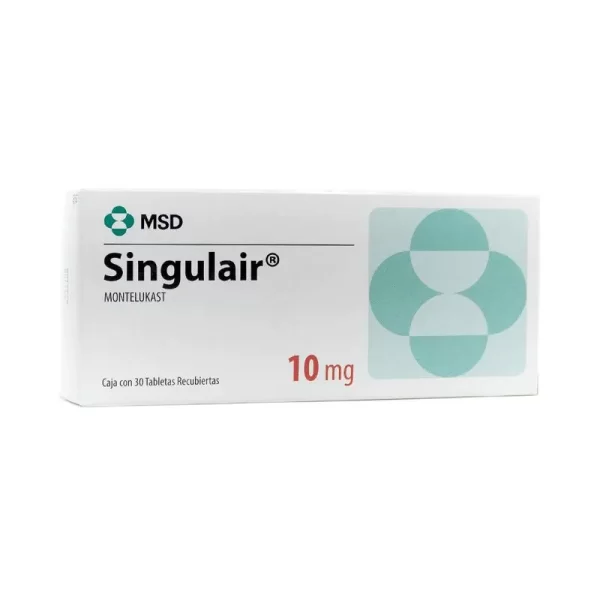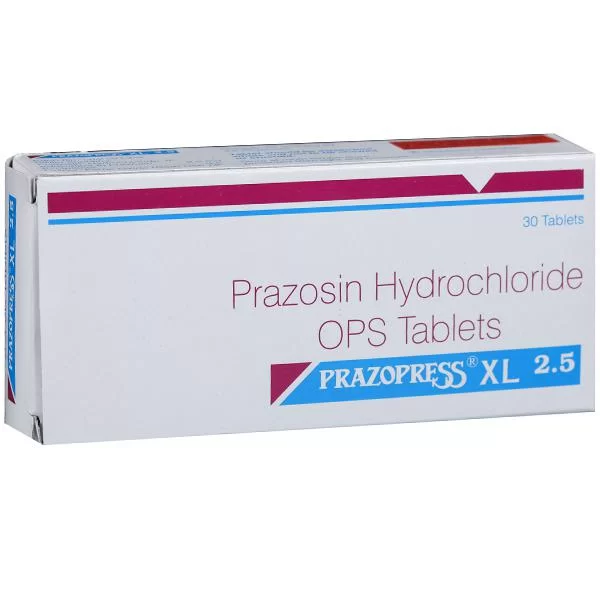
Diltiazem
Diltiazem - 180mg
| Product | Per Pill | Savings | Per Pack | Order |
|---|---|---|---|---|
| 30 Pillen | €3.19 | €95.80 | Buy Now | |
| 60 Pillen | €2.56 | €37.72 | €191.60 €153.88 | Buy Now |
| 90 Pillen | €2.36 | €75.44 | €287.40 €211.96 | Buy Now |
| 120 Pillen | €2.25 | €113.17 | €383.21 €270.04 | Buy Now |
| 180 Pillen | €2.15 | €188.61 | €574.81 €386.20 | Buy Now |
| 270 Pillen | €2.08 | €301.77 | €862.21 €560.44 | Buy Now |
Diltiazem - 60mg
| Product | Per Pill | Savings | Per Pack | Order |
|---|---|---|---|---|
| 60 Pillen | €0.77 | €46.29 | Buy Now | |
| 90 Pillen | €0.73 | €3.33 | €69.44 €66.11 | Buy Now |
| 120 Pillen | €0.72 | €6.67 | €92.59 €85.92 | Buy Now |
| 180 Pillen | €0.70 | €13.33 | €138.88 €125.55 | Buy Now |
| 270 Pillen | €0.69 | €23.33 | €208.32 €184.99 | Buy Now |
| 360 Pillen | €0.68 | €33.33 | €277.76 €244.43 | Buy Now |
Overview of Diltiazem
General Introduction to Diltiazem Diltiazem is a calcium channel blocker used to treat high blood pressure (hypertension), angina (chest pain), and certain heart rhythm disorders. By inhibiting the influx of calcium ions into cardiac and smooth muscle cells, diltiazem relaxes blood vessels and reduces the heart's workload, leading to improved blood flow and reduced blood pressure.
Key Benefits and Unique Properties of Diltiazem
- Blood Pressure Control: Effectively lowers high blood pressure by relaxing blood vessels.
- Angina Relief: Reduces the frequency and severity of angina attacks by improving blood flow to the heart.
- Heart Rhythm Regulation: Helps manage certain heart rhythm disorders, such as atrial fibrillation and atrial flutter.
- Multiple Formulations: Available in various formulations, including tablets, extended-release tablets, and capsules, catering to different patient needs.
- Well-Studied: Extensive clinical research supports its efficacy and safety in treating multiple cardiovascular conditions.
Effectiveness of Diltiazem Clinical studies have shown that diltiazem is highly effective in controlling high blood pressure, reducing the frequency and severity of angina attacks, and managing heart rhythm disorders. Patients often experience significant improvement in symptoms with regular use, leading to better overall cardiovascular health.
Safety and Tolerability of Diltiazem Diltiazem is generally well-tolerated when used at recommended doses. Common side effects include headache, dizziness, flushing, and peripheral edema. Serious side effects, such as heart block, heart failure, and severe hypotension, are rare but can occur. Regular monitoring and patient education are essential to ensure safe use.
Indications for Use of Diltiazem
Diseases and Conditions Treated by Diltiazem Diltiazem is primarily indicated for the treatment of hypertension, angina pectoris, and certain heart rhythm disorders. By relaxing blood vessels and reducing heart workload, diltiazem helps manage these conditions and provides symptom relief.
Primary Symptoms and Indications for Diltiazem
- Hypertension: Effective in lowering high blood pressure, reducing the risk of stroke and heart attack.
- Angina Pectoris: Alleviates chest pain and discomfort associated with angina by improving blood flow to the heart.
- Heart Rhythm Disorders: Helps manage conditions such as atrial fibrillation, atrial flutter, and paroxysmal supraventricular tachycardia by regulating heart rhythm.
Dosage and Administration of Diltiazem
Recommended Dosage of Diltiazem The recommended dose for diltiazem varies depending on the condition being treated. For hypertension, the initial dose is typically 120 to 240 mg once daily, which may be gradually increased to a maximum of 360 mg per day. For angina, the usual dose is 30 to 90 mg three to four times daily. For heart rhythm disorders, the dosage is individualized based on patient response and tolerability.
Timing and Frequency of Diltiazem Administration
- Hypertension: Taken once daily for extended-release formulations or multiple times daily for immediate-release forms, with consistent timing to maintain stable blood levels.
- Angina and Heart Rhythm Disorders: Typically taken three to four times daily, with regular intervals to ensure consistent therapeutic effects.
Additional Recommendations for Diltiazem Use
- Hydration: Maintain adequate hydration to support overall cardiovascular health.
- Missed Dose: If a dose is missed, take it as soon as remembered unless it is almost time for the next dose. Do not double the dose to make up for the missed one. Continue with the regular dosing schedule to maintain consistent blood levels.
Mechanism of Action of Diltiazem
Description of Diltiazem Mechanism Diltiazem works by inhibiting the influx of calcium ions into cardiac and smooth muscle cells. This action relaxes blood vessels, reduces heart workload, and improves blood flow, leading to lowered blood pressure and reduced angina symptoms.
Biochemical Processes Involving Diltiazem The primary action of diltiazem involves blocking L-type calcium channels, which are essential for muscle contraction. By preventing calcium entry, diltiazem relaxes the smooth muscles in blood vessels and reduces the force of heart contractions.
Physiological Effects of Diltiazem
- Organ and System Functions: Reduces blood pressure by relaxing blood vessels, alleviates angina by improving blood flow to the heart, and regulates heart rhythm by reducing the heart's workload.
- Therapeutic Effects: Provides effective relief from high blood pressure, angina, and heart rhythm disorders, improving overall cardiovascular health and quality of life for patients.
Composition of Diltiazem
Active Ingredients in Diltiazem The active ingredient in diltiazem is diltiazem hydrochloride, a calcium channel blocker that effectively relaxes blood vessels and reduces heart workload.
Inactive Ingredients in Diltiazem Inactive ingredients may include lactose, microcrystalline cellulose, magnesium stearate, and other excipients that stabilize the formulation and ensure proper absorption and efficacy of the medication.
Side Effects of Diltiazem
General Introduction Understanding potential side effects is crucial for the safe use of diltiazem. Patients should be aware of both common and serious side effects to monitor their health effectively while on the medication.
Possible Side Effects of Diltiazem
- Common Side Effects: Headache, dizziness, flushing, peripheral edema, and fatigue. These side effects are usually mild and transient.
- Less Common Side Effects: Some patients may experience gastrointestinal disturbances, such as nausea or constipation.
- Serious Side Effects: Rare but serious side effects include heart block, heart failure, severe hypotension, and allergic reactions. Immediate medical attention is required if any serious side effects occur.
Frequency and Severity of Diltiazem Side Effects Common side effects are generally mild and do not significantly interfere with daily activities. Severe side effects are rare but can be serious, necessitating immediate medical intervention. Regular follow-ups and patient education on correct usage can minimize risks.
Prevention of Side Effects of Diltiazem
General Introduction Preventing side effects is key to maximizing the therapeutic benefits of diltiazem. By following preventive measures, patients can reduce the likelihood of experiencing adverse reactions.
Tips for Preventing Diltiazem Side Effects
- Follow Dosage Instructions: Use diltiazem as directed to avoid excessive use, which can lead to adverse effects like severe hypotension.
- Stay Hydrated: Adequate hydration can help reduce the risk of dizziness and other side effects.
- Consult Healthcare Providers: Regular consultations can help manage and prevent adverse reactions. Inform your healthcare provider about any other medications or supplements to avoid potential interactions.
Contraindications for Diltiazem
General Introduction Understanding contraindications ensures the safe use of diltiazem. Certain conditions and diseases may preclude the use of this medication.
Conditions and Diseases Contraindicating Diltiazem
- Severe Hypotension: Diltiazem is contraindicated in patients with severe hypotension due to the risk of further lowering blood pressure.
- Heart Block: Patients with second- or third-degree heart block without a pacemaker should not use diltiazem, as it can exacerbate the condition.
- Hypersensitivity: Patients with a known hypersensitivity to diltiazem or any of its components should not use this medication. Allergic reactions can include symptoms such as rash, itching, swelling, and difficulty breathing.
Warnings/Precautions for Diltiazem
General Introduction Following precautions is essential to ensure the safe and effective use of diltiazem. Patients should be informed about potential risks and how to mitigate them.
Important Warnings for Diltiazem
- Heart Function Monitoring: Diltiazem can affect heart function, so regular monitoring of heart rate and rhythm is recommended, especially in patients with pre-existing heart conditions.
- Liver and Kidney Function: Diltiazem is metabolized in the liver and excreted by the kidneys. Regular liver and kidney function tests are advised to monitor for potential toxicity.
Precautions for Diltiazem Use
- Regular Monitoring: Regular check-ups with healthcare providers are essential to monitor blood pressure, heart rate, and overall response to treatment.
- Patient Education: Patients should be educated on the proper use of diltiazem, recognizing signs of severe hypotension or allergic reactions, and when to seek medical help.
Missed Dose of Diltiazem
General Introduction Proper management of missed doses helps maintain effective symptom control. Patients should be aware of how to handle missed doses to avoid disruptions in their treatment regimen.
What to Do If a Dose of Diltiazem is Missed If a dose is missed, it should be taken as soon as remembered unless it is almost time for the next dose. In such cases, the missed dose should be skipped, and the patient should continue with the regular dosing schedule. It is important not to double the dose to make up for the missed one, as this can increase the risk of side effects.
Tips for Adherence to Diltiazem
- Reminders: Use alarms or medication organizers to help remember to take diltiazem as prescribed.
- Routine: Take the medication at the same time each day, preferably with food, to develop a routine and reduce the chances of missing a dose.
Drug Interaction with Diltiazem
General Introduction Understanding potential drug interactions helps in avoiding adverse effects and ensuring the effectiveness of diltiazem. Patients should be aware of common interactions and how to manage them.
Examples of Interactions with Diltiazem
- Beta-Blockers: Concurrent use with beta-blockers can enhance the blood pressure-lowering and heart rate-reducing effects of diltiazem, increasing the risk of hypotension and bradycardia.
- Digoxin: Diltiazem can increase the plasma concentration of digoxin, necessitating close monitoring of digoxin levels.
- Statins: Concurrent use with certain statins (e.g., simvastatin) can increase the risk of muscle toxicity. Dose adjustments may be necessary.
How to Avoid Negative Interactions with Diltiazem
- Medication Review: Regularly review all medications with healthcare providers to identify and manage potential interactions before they cause adverse effects.
- Inform Healthcare Providers: Always inform healthcare providers of all medications being taken, including over-the-counter drugs and supplements, to ensure safe and effective use of diltiazem.
Overdose of Diltiazem
Symptoms of Diltiazem Overdose Overdosing on diltiazem can lead to symptoms such as severe hypotension, bradycardia, dizziness, fainting, and heart block. These symptoms can vary in severity depending on the amount of medication ingested. Immediate medical attention is necessary if an overdose is suspected to prevent serious complications and ensure prompt treatment.
Actions to Take in Case of Diltiazem Overdose
- Immediate Measures: Seek emergency medical attention or call a poison control center immediately if an overdose is suspected. It is important to provide healthcare professionals with information about the amount of medication taken and the time of ingestion.
- First Aid: While waiting for medical help, provide supportive care to the affected individual. This includes maintaining an open airway, monitoring vital signs, and keeping the person comfortable. Do not induce vomiting unless instructed by a healthcare professional. In a medical setting, treatments may include gastric lavage, activated charcoal administration, and symptomatic management to address specific overdose symptoms.
Pharmacokinetics of Diltiazem
Absorption of Diltiazem Diltiazem is rapidly absorbed following oral administration, with peak plasma concentrations occurring within 2 to 4 hours for immediate-release formulations and 6 to 11 hours for extended-release formulations. The bioavailability is approximately 40%, and food can slightly delay the absorption but does not significantly affect the overall extent.
Distribution of Diltiazem Once absorbed, diltiazem is widely distributed throughout the body, with a volume of distribution of approximately 5 L/kg. It is highly bound to plasma proteins, primarily albumin and alpha-1 acid glycoprotein, which facilitates its transport to the target tissues.
Metabolism of Diltiazem Diltiazem is extensively metabolized in the liver by cytochrome P450 enzymes, primarily CYP3A4. It undergoes deacetylation, O-demethylation, and N-demethylation, resulting in several metabolites, some of which retain pharmacological activity. The metabolism of diltiazem ensures that it is effectively cleared from the body, preventing accumulation and potential toxicity.
Elimination of Diltiazem The metabolites of diltiazem are primarily excreted via the urine, with approximately 2-4% of the dose excreted unchanged. The elimination half-life is approximately 3 to 9 hours for immediate-release formulations and 5 to 10 hours for extended-release formulations, supporting multiple daily dosing or once-daily dosing for extended-release forms.
Dosage Forms of Diltiazem
Available Dosage Forms of Diltiazem Diltiazem is available in several dosage forms, including immediate-release tablets (30 mg, 60 mg, 90 mg, 120 mg), extended-release capsules (120 mg, 180 mg, 240 mg, 300 mg, 360 mg), and extended-release tablets (120 mg, 180 mg, 240 mg, 300 mg, 360 mg). These various forms provide flexibility in administration, catering to different patient needs and preferences.
Advantages of Diltiazem Dosage Forms
- Immediate-Release Tablets: Suitable for multiple daily dosing, providing consistent symptom control throughout the day.
- Extended-Release Capsules/Tablets: Ideal for once-daily dosing, improving patient compliance and convenience. These formulations ensure sustained release of the medication, maintaining stable blood levels and prolonged therapeutic effects.
Pregnancy and Breastfeeding with Diltiazem
Safety of Diltiazem Use During Pregnancy and Breastfeeding The safety of diltiazem during pregnancy and breastfeeding has not been fully established. Animal studies have shown some adverse effects on the fetus, and there are limited data on the use of diltiazem in pregnant women. The medication should be used during pregnancy only if the potential benefits justify the potential risks to the fetus. Diltiazem is excreted in human milk, and due to the potential for serious adverse reactions in nursing infants, a decision should be made whether to discontinue nursing or discontinue the drug, taking into account the importance of the drug to the mother.
Recommendations for Pregnant and Nursing Mothers Using Diltiazem
- Pregnancy: Use diltiazem with caution during pregnancy, particularly in the first trimester. Pregnant women should consult their healthcare provider before starting or continuing this medication. Comprehensive risk-benefit analysis is essential to ensure the safety of both mother and child.
- Breastfeeding: Nursing mothers should consult their healthcare provider to weigh the benefits and risks of using diltiazem while breastfeeding. Regular monitoring of the infant for any adverse effects is recommended if the mother continues to use the medication.
- Consultation: Pregnant and nursing mothers should have regular consultations with their healthcare provider to monitor their condition and the health of their baby. Adjustments to the treatment plan may be necessary based on the mother’s and baby’s health status.
Storage Conditions for Diltiazem
Recommended Storage Conditions for Diltiazem Diltiazem should be stored at room temperature between 20°C to 25°C (68°F to 77°F). The medication should be kept in its original container, tightly closed, and out of reach of children. Protecting the medication from light and moisture helps maintain its stability and effectiveness. These storage conditions ensure that the medication retains its potency throughout its shelf life, providing consistent therapeutic effects.
Temperature and Other Conditions for Diltiazem Storage
- Temperature: Avoid storing diltiazem in extreme temperatures (above 30°C or below 15°C). High temperatures can degrade the active ingredient, while low temperatures can affect the tablet’s integrity.
- Moisture Protection: Keep the medication away from high humidity environments such as bathrooms. Exposure to moisture can cause the tablets to break down or lose potency.
- Shelf Life: Check the expiration date on the packaging and do not use the medication past this date. Proper adherence to storage guidelines ensures the medication remains effective throughout its shelf life. If the medication shows any signs of deterioration, such as changes in color or texture, it should be discarded.
Clinical Trials and Efficacy of Diltiazem
Overview of Diltiazem Clinical Trials Diltiazem has been evaluated in numerous clinical trials to assess its efficacy and safety in treating hypertension, angina, and heart rhythm disorders. These studies typically involve large patient populations with various demographics and conditions. The trials are designed to measure improvements in symptoms, blood pressure control, angina frequency, and heart rhythm regulation. The results consistently demonstrate the medication’s ability to provide significant relief from symptoms, supporting its use in clinical practice.
Key Findings and Conclusions of Diltiazem Studies
- Efficacy: Clinical trials consistently show that diltiazem significantly reduces blood pressure, alleviates angina symptoms, and helps manage heart rhythm disorders. These findings highlight the medication’s effectiveness in improving cardiovascular health and enhancing patients’ quality of life.
- Safety: The safety profile of diltiazem is well-documented, with a low incidence of severe side effects when used as directed. Long-term studies confirm its tolerability and continued effectiveness over extended periods. Patients generally experience minimal side effects, making it a reliable and safe treatment option for chronic cardiovascular conditions.
- Comparison: Diltiazem’s efficacy is comparable to other calcium channel blockers and superior to placebo. It provides an effective alternative or adjunctive therapy for patients who need additional control of their symptoms. This makes it a valuable option in the management of hypertension, angina, and heart rhythm disorders.
Conclusion
Summary of Diltiazem Benefits Diltiazem is an effective and well-tolerated medication for managing hypertension, angina, and heart rhythm disorders. Its mechanism of action involves blocking calcium channels, relaxing blood vessels, and reducing heart workload. Clinical trials have demonstrated its ability to provide significant relief from symptoms, improve blood pressure control, alleviate angina, and regulate heart rhythm. The medication is available in various formulations, making it suitable for different patient needs.
General Recommendations for Diltiazem Use Diltiazem offers several advantages, including its effective relief from high blood pressure, angina, and heart rhythm disorders. Patients and healthcare providers should consider diltiazem for comprehensive cardiovascular management. Regular monitoring and adherence to prescribed dosages enhance its safety and efficacy. For optimal results, patients should follow their healthcare provider’s instructions and maintain open communication about their treatment progress.




